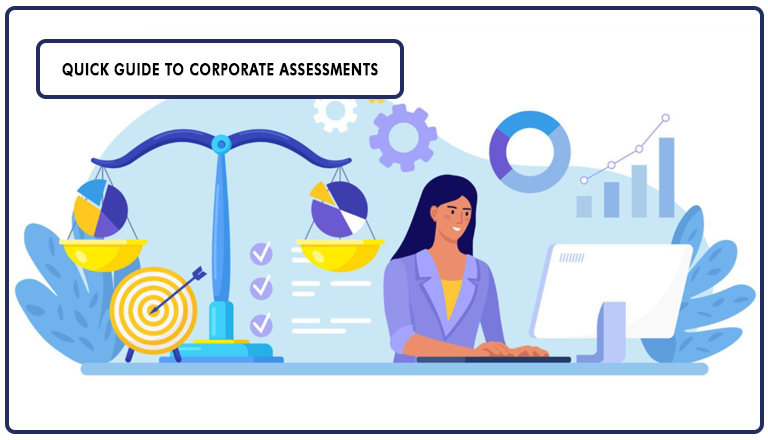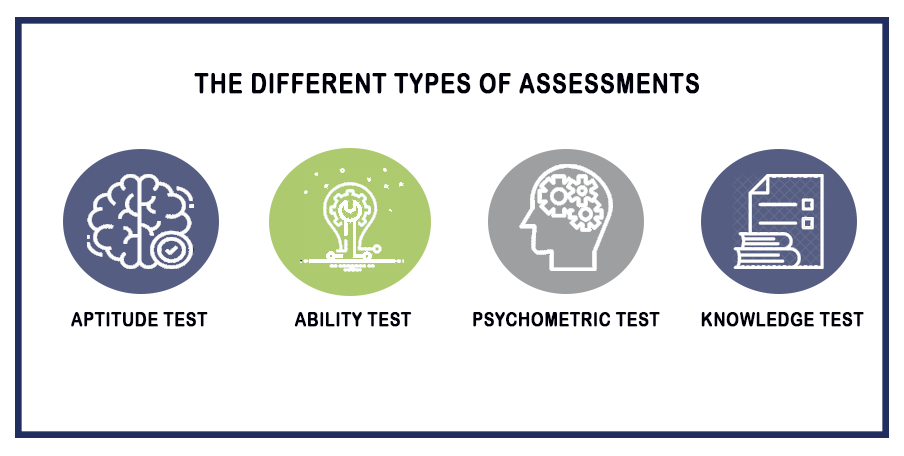More than 75% of The Times Best Companies to Work For and 80% of Fortune 500 firms use some form of psychometric testing. Not only that but companies who use pre-hire assessment tests report a 39% lower turnover rate, according to research conducted by the Aberdeen Group. With this data in mind, the importance of corporate assessments in hiring and developing talent cannot be undermined.
However, not all corporate assessments are created equal. And while one assessment may give an accurate presentation of an employee’s level of skill, another one may give a misleading presentation. So, if you are working in an organization and considering using assessments for talent acquisition or development or succession planning, you will find it helpful to learn first how to navigate all the types of assessments out there.
In this article, we’ll take you through a quick journey to help you discover the different types of assessments and how to distinguish the signal from the noise.
The Different Types of Corporate Assessments
Aptitude Tests
These are tests that measure one’s potential to do well in a particular ability, once learned. It does not signify current competence but rather potential competence if learning happens. Examples of such tests are foreign language or numerical aptitude tests.
Ability Tests
These are tests that measure one’s current level of skill with regard to a particular ability. In other words, they tell you whether someone has the ability to do something. In that sense, ability is the result of both aptitude and learning combined. Ability tests are numerous such as numerical ability, geospatial ability, musical ability, kinesthetic ability, etc.
Psychometric Tests
These are tests that measure behavioral traits or habits that an individual demonstrates or prefers. They could also measure certain personality dimensions. Examples of psychometric assessments are intelligence quotients, resilience assessments, personality assessments, etc. It is essential when using these assessments not to use them as an excuse for propagating bias. Instead, you need to appreciate the diversity they uncover and use their results to guide development & coaching efforts.
Knowledge Tests
These are tests that measure an individual’s level of knowledge regarding a particular topic. Knowledge, being the first level of Bloom’s Taxonomy, does not equate to skill or ability. The fact that someone ‘knows’ about something does not mean they can do it. As such, these knowledge tests are less often used in hiring talent and more often used as pre and post assessments while delivering learning solutions.
While delivering learning solutions, knowledge tests are usually administered in two forms:
Formative Assessments: As the name implies, ‘formative’ assessments are knowledge tests used to ‘form’ the remainder of the training program. They are assessments used pre or mid a training program to guide the training content and delivery till the end.
Summative Assessments: These are knowledge tests that are used towards the end of the training program to measure learning outcome. They measure whether the individual has actually learned what they were supposed to learn in the program.
The Two Main Factors of Assessments
When selecting corporate assessments for your talent management efforts, besides ensuring you select the right type of assessment for your purpose, you must also ensure that the assessment is scientifically sound. You can achieve this through the two below factors:
Validity: This factor means that the assessment actually measures what it says it measures. This is usually achieved by comparing the results of the assessments with the actual real-life performance of the individuals who take it. Do they match? Do high test-scorers actually have high performance in real-life? Do low scorers actually have low performance? Of course, you don’t need to check the validity of the assessments on your own staff, although this is a good follow up practice. What you need to do is make sure that the assessments you use or purchase have sound statistical validity already proven by the assessment creators.
Reliability: This factor means that the results of the assessment remain relatively stable over time. This is usually achieved by the assessment creators through asking test takers to retake the test after a period of time passes since their initial test experience. If the results are relatively the same, the test is reliable; if not, then it is not reliable. It is important that you observe the reliability of the assessments you use on your own employees but it is also more important to seek out the reliability data of the assessment creators. If a test has low reliability, then it’s most probably not worth your budget.
Assessing Your Talent through Valid & Reliable Corporate Assessments
These were the two factors that you must consider as you purchase assessments for recruitment, learning, or succession planning efforts. If you’re interested in purchasing assessments you can trust for your organization, check out our vast library of assessment solutions here.



